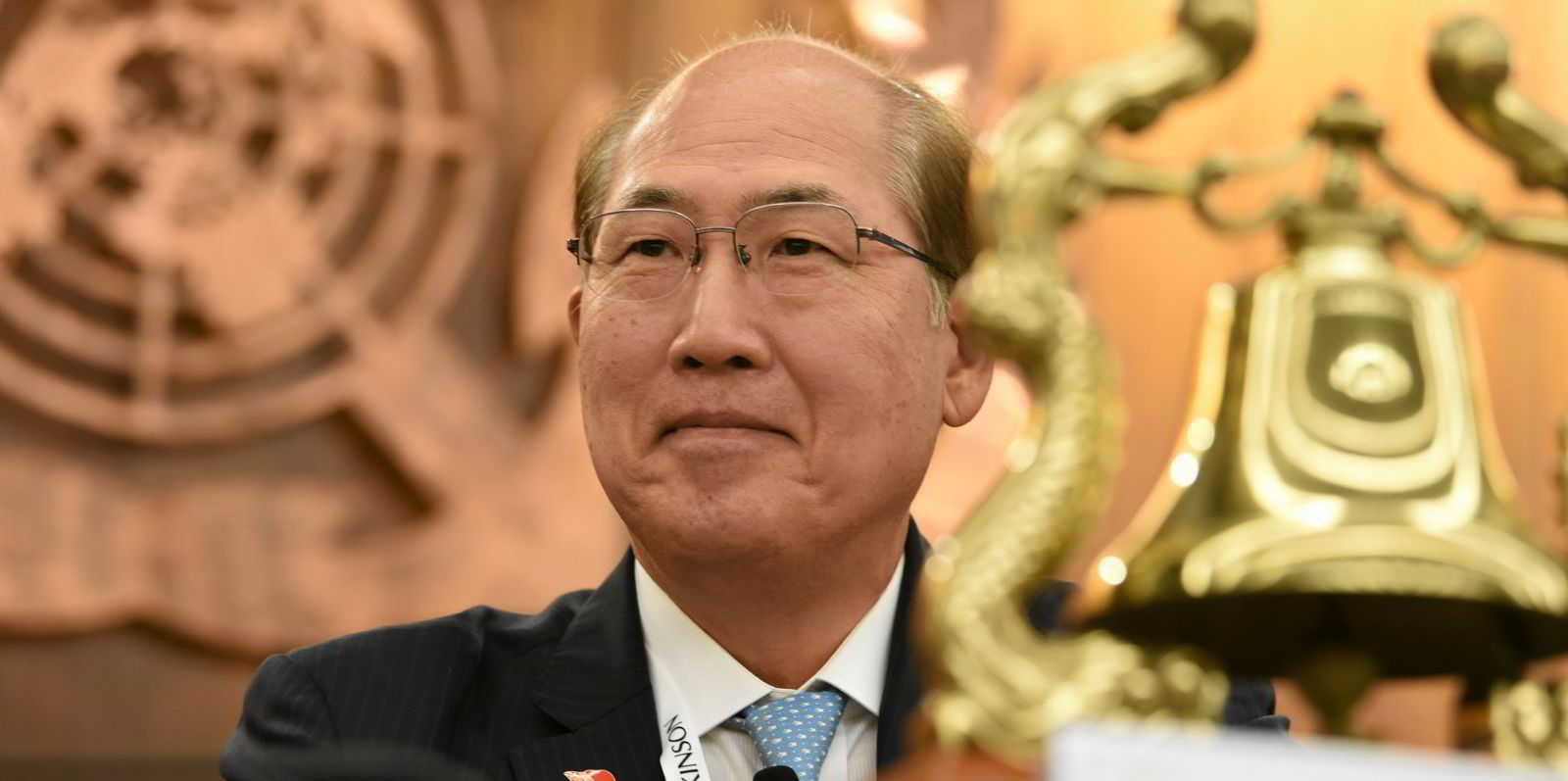IMO secretary general Kitack Lim faced both diplomatic opposition and direct challenges from top industry and government speakers at an opening-day session of this year’s long-delayed Nor-Shipping industry congress.
Lim delivered a plea for greater collaboration and communication among its member states and among industry stakeholders to meet the urgent goal of decarbonisation.
The IMO is currently revising its 2018 decarbonisation strategy with a mid-2023 deadline.
But it is the IMO itself that runs the risk of being the party responsible for a failure to decarbonise shipping, Trafigura global head of fuel decarbonisation Rasmus Bach Nielsen told delegates.
“Collaboration will not solve the problem,” said Bach Nielsen. “The problem is the price gap [between present and future fuels].”
Only government action driven by international regulation and financial support can bridge that gap. The IMO is responsible for creating a global framework to address the cost of future fuels, and if it fails to do so, it will be responsible for the consequences, said Bach Nielsen.
Trafigura has long touted what it calls a “feebate” system — a high carbon levy on the use of fuels with CO2 intensity above a benchmark level, with the proceeds used to fund a subsidy for purchase of fuels below that level.
Bach Nielsen has previously criticised the EU for using parts of the proceeds of its emissions trading system for unrelated purposes such as Covid relief support.
Shipowner Synnove Seglem expressed agreement with her fellow panellist that carbon levies need to feed directly back into technical development. Seglem is deputy managing director at Knutsen OAS Shipping and vice president of the Norwegian Shipowners’ Association.
Magda Kopczynska, director for waterborne transport at the European Commission (EC), put her challenge to the IMO more diplomatically than Bach Nielsen.
“We want to make sure the revised IMO strategy will be fit for the future,” she said.
She emphasised the role of the EC in implementing its own regional goals as a way of pushing the IMO to implement stronger global ones.
“It is good to talk after the IMO because we agree on so many things. But I want to use this opportunity to challenge all of us a little bit,” said Kopczynska.
Details of an emissions trading system for the EU are to be formalised this year and implemented in 2023.
“What better way is there to see how a carbon pricing [scheme] could work than to have one in action?” she asked delegates rhetorically.




